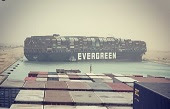Majid Takht-Ravanchi, Iran’s permanent Ambassador to the
United Nations has demanded the United States to withdraw all of its occupying
forces from Syria.
Majid Takht-Ravanchi made this demand on Monday while addressing
the United Nations Security Council. He emphasized that the sole solution to
the crisis in Syria would be implementation of peace, confirming to international
laws.
The Iranian Ambassador underlined that all foreign forces
that are present in Syria without the Damascus government’s approval,
particularly the American troops occupying parts of Syria, must leave the
country as soon as possible.
“The Syrian people do not accept continued occupation of
their soil or violation of their country’s sovereignty and the international
community should not concede to it either, because it contravenes the most
basic principles of international law,” he noted.
Takht-Ravanchi also strongly condemned frequent attacks by the
US and Israel forces in Iraq and Syria, as these illegal measures only worsen
the situation in an already tense region.
“The Syrian crisis has no military solution and the sole way
to end it would be a peaceful one in total conformity to principles of
international law and articles of the Charter of the United Nations,” he
pointed out.
Takht-Ravanchi also called on the international community to
put an end to Israel's military adventurism in the region.
Iran has long criticized presence of US military in Syria.
In late February, Iran’s Foreign Ministry spokesman Saeed Khatibzadeh condemned
American attacks on areas east of Syria, saying the illegal bases run by
American forces in the country are used to train terrorists for later use
against the Syrian government.
“Illegal American bases on the Syrian soil are training
terrorists and using them against the Damascus government,” Khatibzadeh said.
Speaking at a Security Council meeting on Syria in November,
Takht-Ravanchi said the US is plundering the Syrian nation’s wealth and oil
resources while supporting terrorist groups in the Arab country, calling for an
immediate and unconditional withdrawal of American troops from the war-ravaged
country.
Also in February, Iran’s mission to the United Nations in
New York condemned the brutal attacks of foreign-backed terrorists and illegal
occupation as well as inhumane sanctions.
Eshagh Al Habib, Deputy Permanent Representative of the
Islamic Republic of Iran to the United Nations, told the UN Security Council on
February 25 that “For ten years, the Syrian people have utterly suffered from
the brutal attacks of foreign-backed terrorists and illegal occupation, and in
recent years, from inhumane sanctions.”
He noted, “The international community has a responsibility
to help the Syrian people and government to overcome this crisis and to ensure
Syria’s unity, sovereignty, territorial integrity and political independence.
In this context, we call for the immediate withdrawal of all foreign forces
that are present in Syria without the permission of its government. These and
other aspects of the Syrian crisis have been extensively discussed in the
Astana format meeting, held recently in Sochi, Russia, following which a joint
statement was issued by Iran, Russia and Turkey. The three countries condemned
the increasing terrorist activities in Syria and agreed to continue cooperation
to ultimately eliminate Daesh, Al-Nusra Front and all other Security Council
designated terrorist groups and their affiliates.”
Al Habib pointed out that these countries also expressed
serious concern over the increased presence and terrorist activity of “Hayat
Tahrir al- Sham” and other affiliated terrorist groups and the threat they pose
to civilians inside and outside the de-escalation Idlib area.
The Iranian diplomat also took a jab at US sanctions on
Syria, saying these sanctions will only prolong the crisis and inflict more
pain on the Syrian people.
“The imposition of unilateral sanctions against Syria
further exacerbates the situation and prolongs both the crisis and the
sufferings of the people. Such sanctions are unlawful, inhumane and
unjustifiable, and must therefore come to an immediate end,” he stressed.
“Mounting political and economic pressures on Syria or
making multiple preconditions for the peaceful settlement of the crisis has
proven to be counterproductive. Reconstruction of the country and the return of
refugees and displaced persons must go hand in hand with the political process.
They are interlinked, mutually inclusive and mutually reinforcing,” Al Habib
continued.
“Finally, Iran reiterates its commitment to political
resolution of this crisis and will continue supporting the people and
government of Syria to restore the unity and territorial integrity of their
country,” he concluded.
Iran and Syria enjoy close relations. In Late February,
Khatibzadeh traveled to Syria and held talks with Syrian officials and attended
meetings of think tanks, media outlets and elites in the Arab country. The
meetings were held in Damascus in line with Iran-Syria cooperation in public
diplomacy, media and cultural arenas.






